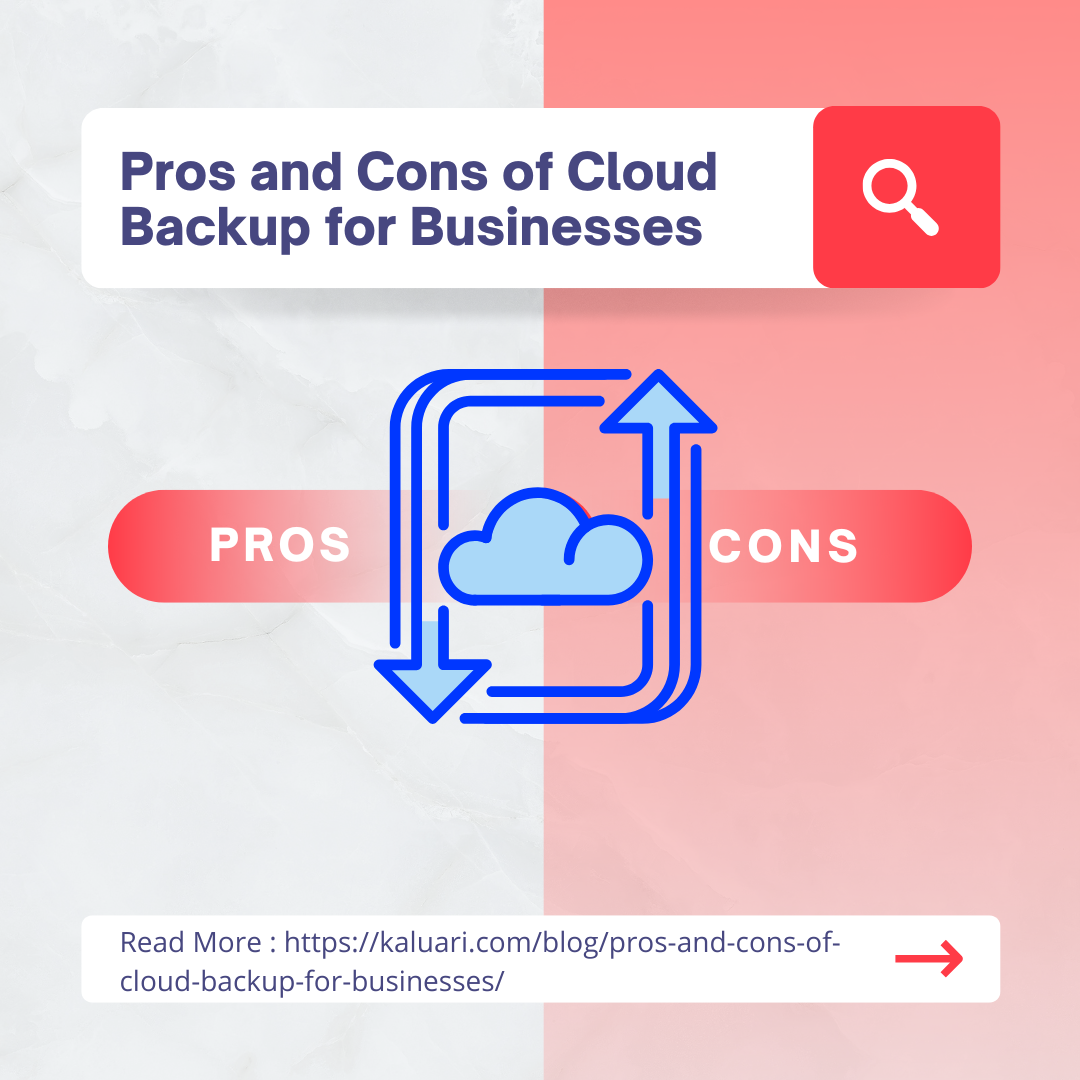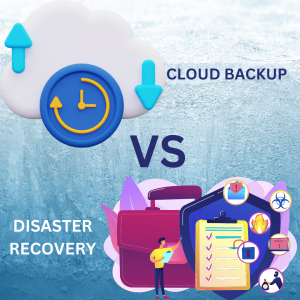This article explores the pros and cons of cloud backup so you can make an informed decision that aligns with your business needs. Cloud backup solutions have become increasingly popular, offering a modern and scalable way to store and recover data. Data is everything. From customer records and financial data to project files and proprietary information, businesses rely heavily on data to function and grow. With this reliance comes the responsibility to protect it. But is it the right choice for every business?
RELATED: Why Traditional Backup Is Not Enough
What is Cloud Backup?
Cloud backup involves remotely storing copies of your data on secure servers hosted by a third-party provider. Instead of keeping data solely on physical devices like external hard drives or on-site servers, businesses upload their files to the cloud via the Internet, ensuring they are retrievable in case of hardware failure, cyberattacks, accidental deletion, or natural disasters.
READ MORE ON THIS: Why Your Business Needs Offsite Cloud Backup
Pros of Cloud Backup for Businesses
1. Cost-Effective
Traditional backup systems require physical infrastructure, maintenance, and investment from IT personnel. Cloud backup eliminates these upfront costs. You pay only for what you use, usually in a monthly or annual subscription model, which makes it highly affordable for small and medium businesses.
2. Automatic & Real-Time Backups
One of the most significant advantages of cloud backup is automation. Once configured, your data is automatically backed up on a schedule or in real time. This reduces the risk of human error and ensures your data is always up to date.
3. Remote Accessibility
Need to recover a file while working remotely or traveling? Cloud backup allows you to access your data from anywhere, as long as you have an internet connection. This flexibility is crucial for modern businesses with remote teams or multiple locations.
4. Scalability
As your business grows, so does your data. With cloud backup, you can scale up your storage needs instantly without the hassle of purchasing new hardware or expanding your IT infrastructure.
5. Disaster Recovery
Cloud backup is a core component of any disaster recovery plan. In the event of fire, theft, or flood at your physical office, your data remains secure and easily recoverable from the cloud.
6. Security & Encryption
Reputable cloud backup providers offer robust encryption protocols, both in transit and at rest, as well as multi-factor authentication and compliance with industry standards like GDPR, HIPAA, and ISO certifications.
READ ALSO: Why Cloud Backup is Essential for Every Business in 2025
Cons of Cloud Backup for Businesses
1. Internet Dependency
Since cloud backups rely on internet connectivity, a slow or unreliable connection can delay backups or make it difficult to access your files during emergencies.
2. Recurring Costs
Although cloud backup eliminates upfront hardware costs, the subscription model can become costly over time, especially for businesses with large data volumes or advanced storage requirements.
3. Data Privacy Concerns
Storing sensitive data offsite introduces a level of risk. While most providers follow strict security protocols, you still trust a third party with your data. Choosing a provider with a strong track record and transparent privacy policies is vital.
4. Recovery Speed
Depending on your internet speed and the amount of data being restored, recovery from the cloud may take longer than from a local backup, especially during large-scale restorations.
5. Potential Vendor Lock-In
Switching providers isn’t always easy. Some vendors use proprietary data formats or limit data migration, making it hard to move your backup files to another service if you switch.
READ NOW: 8 Reasons Why Cloud Backup Is Essential for Data Protection
Is Cloud Backup Right for Your Business?
Ultimately, the decision comes down to your business needs, infrastructure, and risk tolerance. Small and medium-sized enterprises (SMEs) often benefit the most from cloud backup due to its flexibility, affordability, and ease of use.
However, businesses with extremely high data volumes or sensitive information may opt for a hybrid approach using cloud and on-premise backups for redundancy and faster local access.
Why Choose Kaluari’s Cloud Backup Solutions?
At Kaluari, we understand the unique challenges businesses face regarding data protection. Our scalable, secure, cost-effective backup solutions are designed to give you peace of mind.
- Daily automated backups.
- End-to-end encryption.
- Rapid disaster recovery.
- 24/7 monitoring and support.
- Compliant with data protection regulations.
Don’t wait for a data loss incident to take action. Protect your business today.
Schedule a free consultation to assess your backup strategy and explore how Kaluari can help secure your digital future.
FAQs
For more visit: FAQs
Q: Can cloud backups be used for entire systems or just files?
A: Yes, many cloud backup solutions can back up entire systems, including applications, databases, and OS configurations.
Q: How often should businesses back up their data?
A: Ideally, backups should happen daily or in real time, depending on how critical your data is.
Q: What if I lose my internet connection?
A: Most cloud systems resume uploading or downloading once the connection is restored. For added security, consider a hybrid backup model.
Cloud backup is an innovative, modern solution for today’s data-driven businesses. While it’s not without challenges, the advantages far outweigh the drawbacks, especially when paired with the right provider. Are you ready to safeguard your business data?
Let’s talk. Contact Kaluari today.




